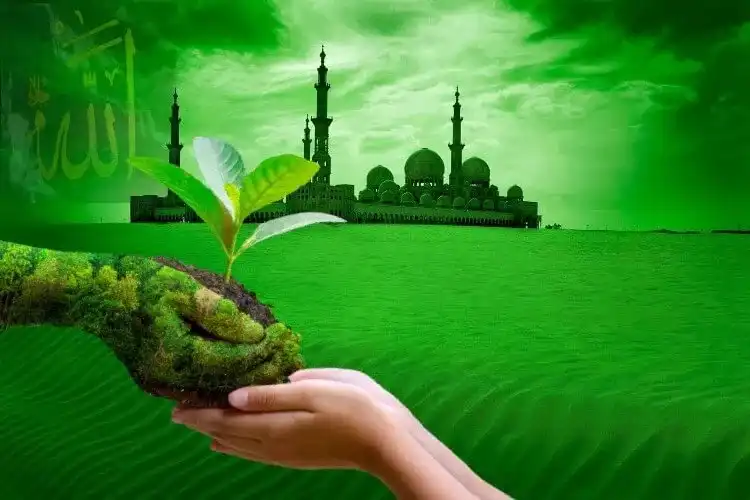
Salman Abdus Samad
Islam is a religion that guides human beings in even the smallest of matters of life. In Islam, the rules of defecation are found in detail making it a pro-nature and responsible religion. Along with other instructions, Islam also talks about the conservation of the environment and natural resources such as forests, water, food, and land. The following lines illustrate Islam’s emphasis on environmental protection. We get plenty of such clear instructions from the Quran and Hadith (the teachings and sayings of Prophet Muhammad),
In the Qur'an, God mentions: (The translation from original Arabic):
"And it is He who makes the water rain from the sky, then We (God) take out all kinds of things (trees and plants) from it, then we grow green branches out of it."
World Nature Conservation Day
Rain and tree plantations are being associated with the creation of the universe. That means God is referring to trees and plants about his creation. The purpose of this is saying is to convey to the man he should also plant trees for improving his environment and preserving the same. This Quranic verse forms the fundamentals of nature conservation that are being so assiduously pursued today as the degradation has set in.
A lot has been said in the Qur'an about the sun, rain, trees, plants, and water. After the Qur'an, when we go to the hadith the importance of tree plantation is equally clear. Prophet Muhammad said:
"Whoever plants a tree, and some of it is eaten (one will eat), it will become a charity (sadqa) for him, and whatever is stolen from the tree will become a charity for him until the Day of Judgment." (Muslim Sharif)
Three things are understandable here: One, the emphasis is on the planting of trees. Secondly, the virtue of charity has been mentioned. In other words, it can be said that planting trees in Islam is not only an environment; it’s also charity. Planting trees is not only good for the environment but is also considered a good deed in the eyes of divinity.Third, just as fruits will benefit humans, plants will benefit the environment. That is, man is getting many benefits from trees and plants. There is a mention of eating the fruits of the trees planted here, while in other hadiths it is also found that people will rest and sit under the trees, for which the planter will get his reward (on the day of reckoning).
Below is one such hadith that forbids the cutting of trees. Hazrat Ali says: When Prophet Muhammad sent people to war, he used to give them this command: Do not kill any child; do not kill any woman; do not kill any old man; do not dry the springs and do not cut down the trees.
Also Read: Ghose looks after Guwahati shrine, upholds unity of faiths
The important point here is that before going to war, matters related to the environment and humanity were being told to the warriors. From this, one can safely conclude that when the instructions for war included protection of plants the question about religion allowing vandalism on forests is irrelevant.
Just as Islam has encouraged the planting of trees, it has ordered man to conserve water. It gives clear instructions on saving water from contamination. According to Islam, urination and defecation are forbidden in both stagnant and flowing water as urine and feces contaminate water. Water contamination is the cause of cholera; it also causes diseases such as cholera, typhoid, and inflammation of the liver and stomach.
In this regard Prophet Muhammad said:
Do not defecate on the water jet.
Do not defecate in public places.
Do not defecate in shady places.
These orders are meant to maintain sanitation and also not contaminate soil and water. The religion prohibits defecation on the banks of Rivers or canals, drains, and rivers. Similarly, the Prophet forbade urinating in stagnant water. (Bukhari Sharif)
This makes it clear that Islam is a religion associated with nature. In reality, an attempt has been made to adapt Islamic laws to the human race and nature. The issue of environmental protection is not only related to human society, it has become important for the existential survival of humans and all other living beings.
(Salman Abdus Samad is a visiting faculty to the University of Assam, Silchar, Assam)
